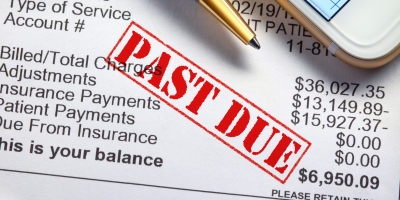So, you got a bonus. Whether it was a bonus for all of the hard work you did last year, a payout from your financial investments, or a stimulus check, it probably feels really exciting. But it might also feel a little overwhelming as you try to decide the best use for the lump sum of money. Keep reading to learn the strategies you can use to prevent a bonus from destroying your budget.
Don’t have a budget? Grab my Family Budget Workbook to help you get started! Trust me, you’ll be happy you did!
How a Bonus Can Hurt Your Finances
It’s hard to think of extra money in your account as a bad thing, but it really can be, especially for those that are new to budgeting.
When Justin and I first made an effort to get our financial affairs in order, we had no money. In fact, we were zeroing out the bank account every month just paying for our basic expenses. So, whenever a bonus graced our account, it felt like we’d just won the lottery. Often, we’d just take the money and spend it on whatever suited our fancy. New clothes, eating out, etc. And, don’t get me wrong – for some people there’s nothign wrong with that. BUT, for two new-to-budgeting individuals, our desire to spend money didn’t just end when the bonus money ran out. Soon we were back to using our credit cards and digging ourselves further into debt. Why? Because we got ourselves out of the habit of using our money responsibly.
So, how can you save your budget AND enjoy your bonus as well? Check out the following ways we’ve been successful.
Note: If you don’t already have a budget in place, now is the time to create one. Check out my step-by-step process to help you do just that. Find it HERE.
Step 1: Allocate to Critical Expenses
The past year has been rough for many when it comes to finances. If that’s been true for you, then the place to start with that bonus money is by paying down those critical expenses. It could be your mortgage or rent payment, utility bills that you’ve fallen behind on, or anything else that’s essential for your family’s survival.
For us, those critical expenses would include the following:
- Mortgage
- Utilities
- Phone
- Internet
- Gas/Transportation
- Food*
Your critical expenses might be slightly different. For example, I work from home, so the internet is critical for me, but it might not be necessary in your situation.
It might not seem like “fun” to use your bonus for day-to-day expenses, but take a moment to think about how much you’ll appreciate yourself for doing so in a month or year down the line.
*Note: Your grocery budget, while critical, is a place where people can overspend and get into trouble. Make sure you are only augmenting that category of your budget if it’s completely necessary. The last thing you want to do is get yourself in the habit of spending more on groceries than you would normally.
Step 2: Buff Up those Funds
Once you have the critical expenses taken care of, it’s time to buff up those savings funds. Sure, you might allocate money directly to your general emergency savings (and that’s totally okay), but in our case I choose to focus on things that will come up over the course of the year. By doing so, I know that I’m spreading that bonus over the months to come.
Our funds include:
- Vacation
- Home Improvement
- Birthday
- Christmas
- Back to School Supplies
- Medical Bills
- Pet Care
- Justin Clothing
- Sarah Clothing
- Kids Clothing
- Miscellaneous
- Game Night
If money has been tight, it’s likely that I’ll choose to divy up the bonus money between pet care, medical bills, and our clothing funds. Also, if we’ve seen some additional home improvement needs, then I’ll add a little there as well. Of course, your funds will likely be different than ours, so take a look at what matters most to you and your family.
*Note: For more information on how we utilize funds throughout the year, check out this post.
Step 3: Pay off Debt or Add to Emergency Savings Fund
I’m sure I’ll get several mean spirited emails informing me that debt payoff and emergency savings should be top priority for those with extra money, but there’s a reason that I’ve placed this step so far down the list. When you receive a large chunk of money and your temptation is to spend it, then setting the money in a “general fund” or paying off debt is a dangerous game to play with yourself. In our case, if the money isn’t allocated for a specific purpose, it’s likely that we will spend it. So, if we still $600 into our general savings account, it’s likely that we will think about the fact that the money is there, and rationalize ways that we could use it anyway. The same goes for debt payoff. If we use that $600 to pay down our credit card, suddenly we are thinking about using that card for whatever comes up this next month.
All that to say that, in our case, it’s much better for us to allocate the “bonus” money to essential needs and specific funds BEFORE we choose to pay of debt or add to our general savings account.
Of course, we all function differently. If you can pay down debt or add to savings account without the temptation of revisiting that money, then by all means do so!
How Will You Prevent a Bonus from Destroying Your Budget?
Ultimately, it’s your choice how you use your bonus. If you do choose to spend it, just make sure to keep in mind the long-term cost of doing so. There’s nothing wrong with a new phone, but if it means an increase in your monthly bill, you’ll want to confirm that you can handle that expense for the months and years to come. Otherwise, you’ll find yourself (and your financial situation) in a world of hurt, regretting that you ever recieved the extra money.
In our case, we no longer regret the extra income. In fact, we celebrate that we can allocate it to the areas of our budget that have been underfunded and make life easier for ourselves over the months and years to come. That’s a great reason to celebrate!
How do you plan to use any bonus money you receive this year? Leave a comment below and let us know!



